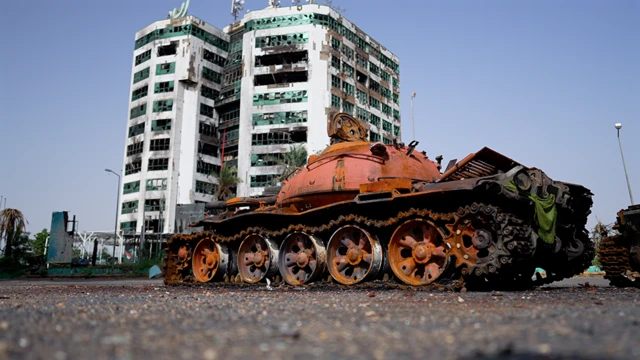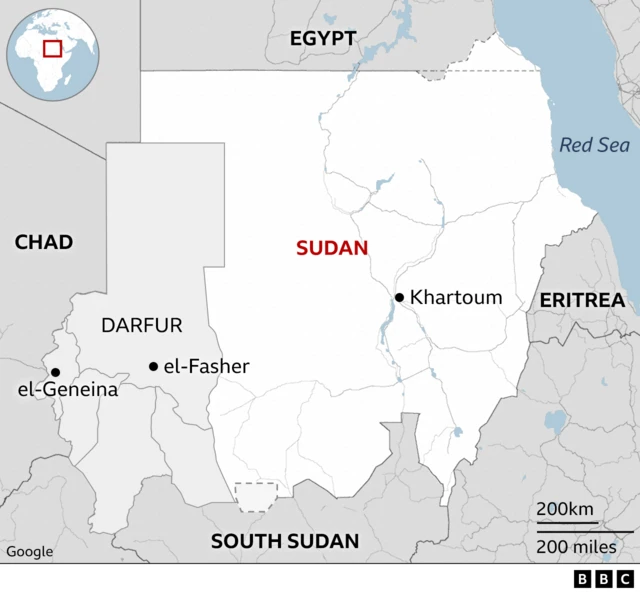'We've lost contact with our families,' woman with relatives in el-Fasher tells BBCpublished at 11:03 GMT 28 October
Our BBC Arabic colleagues have been hearing from families from el-Fasher who are outside the city and have been left in a state of anxiety and dread after losing contact with their loved ones.
"May God protect the city and all the surrounding towns," one resident says, adding that many people still inside the city have been "unreachable" since Monday.
"Many people were killed, others are wounded, and some are unable to leave el-Fasher," she adds.
Quote MessageWe’ve lost contact with our families and with many people still inside el-Fasher, even though we’ve repeatedly called for their safe evacuation."
Woman with relatives in el-Fasher

